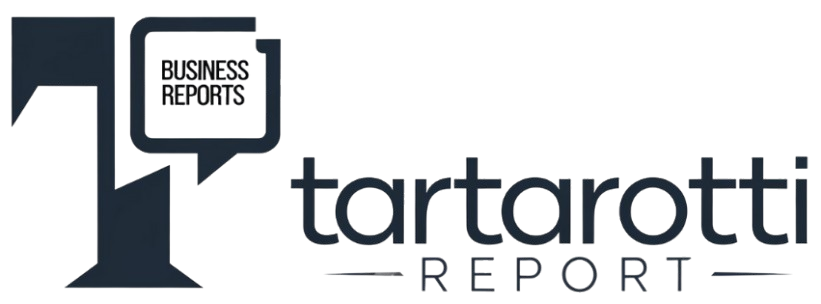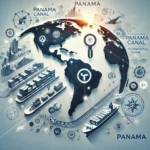Introduction:
In the increasingly interconnected world of global finance, international trusts have emerged as powerful tools for estate planning and asset protection. Whether you are an entrepreneur looking to diversify your assets globally, a financial advisor guiding high net worth clients, or a lawyer specializing in international law, understanding the nuances of international trusts is crucial in today’s financial landscape.
According to a recent report by Knight Frank, the number of ultra-high net worth individuals (over $30 million) is expected to increase by 27% over the next five years. This exponential growth in global wealth highlights the increasing need for sophisticated wealth planning structures, where international trusts play a central role.
In this comprehensive guide, we will unravel the complexities of international trusts, providing practical insights and advanced strategies to optimize their use. Get ready for a journey that will transform your understanding of asset protection and succession planning on a global scale.
Part 1: Ready to Roll 🚀 – Basic Strategies and Practical Actions
Part 1, “Ready to Roll”, offers practical actions and immediate advice for entrepreneurs who need quick and effective guidance.

- First Steps in International Trusts: Before diving into the deep waters of international trusts, it is essential to establish a solid foundation:
- Understand the basic concept: An international trust is a legal relationship where an individual (settlor) transfers ownership of assets to a trustee, who manages them for the benefit of third parties (beneficiaries).
- Identify your objectives: Clearly determine what you want to achieve with an international trust. This could include asset protection, succession planning, confidentiality or tax optimization.
- Familiarize yourself with popular jurisdictions: Research jurisdictions known for their favorable trust regimes, such as the Cayman Islands, Jersey, Singapore or New Zealand.
- Consult experts: Before making any decisions, consult lawyers and tax advisors specializing in international trusts and global estate planning.
- Developing Strategies for International Trusts: When structuring your international trust, consider the following strategies:
- Choice of jurisdiction: Select a jurisdiction that offers the right balance between asset protection, tax efficiency and international reputation.
- Type of trust: Decide between different types of trusts, such as discretionary trusts, fixed interest trusts, or purpose trusts, depending on your specific objectives.
- Governance structure: Establish a robust governance structure, potentially including a protector or an advisory committee to oversee the trustee’s activities.
- Tax planning: Work with tax experts to ensure that the trust structure is tax efficient in all relevant jurisdictions.
- Creating and Maintaining an Effective International Trust: To establish and maintain an effective international trust:
- Careful choice of trustee: Select a professional trustee with proven experience in administering international trusts and an impeccable reputation.
- Detailed documentation: Prepare a comprehensive trust deed that clearly articulates your wishes and the rules for administering the trust.
- Ongoing due diligence: Carry out regular due diligence checks on all aspects of the trust, including the trustee’s performance and regulatory compliance.
- Periodic reviews: Schedule annual reviews of the trust structure to ensure that it remains aligned with your objectives and the ever-changing regulatory environment.
Part 2: Deep Dive 🤿 – Technical Deep Dive into Advanced Strategies
Part 2, “Deep Dive”, provides in-depth analysis for those wishing to delve into the technical and complex aspects of international finance.

- Detailed Analysis of Advanced International Trust Structures: Let’s explore some more sophisticated international trust structures: a) Asset Protection Trusts (APTs): These trusts are specifically designed to protect assets against future creditors. Jurisdictions such as the Cook Islands and Nevis are known for their strong APT laws. Example: An American doctor sets up an APT in Nevis to protect his personal assets against potential malpractice suits. b) Private Trust Companies (PTCs): A PTC is a corporate entity created for the sole purpose of acting as trustee for a trust or group of related trusts. This offers greater control and flexibility in the administration of the trust. Case: A high net worth Brazilian family sets up a PTC in Singapore to act as trustee for several family trusts, allowing more direct control over investment and distribution decisions. c) Mixed Purpose Trusts: These trusts combine individual beneficiaries with specific purposes, offering great flexibility in asset structuring. Application: A Chinese businessman creates a mixed purpose trust in the Cayman Islands, assigning part of the assets to his children and part to maintain control of his family business.
- Implementation of Tools and Technologies: The effective administration of modern international trusts requires the use of advanced technologies:
- Global Asset Management Platforms: Use software such as FundCount or SEI Wealth Platform to track and manage assets in multiple jurisdictions and currencies.
- Automated Compliance Solutions: Implement tools such as Comply Advantage or Thomson Reuters ONESOURCE to ensure continuous compliance with global regulations, including CRS (Common Reporting Standard) and FATCA.
- Digital Governance Systems: Adopt platforms such as DiliTrust or Boardvantage to facilitate secure communication and decision-making between settlors, trustees and beneficiaries.
- Predictive Analytics for Risk Management: Explore the use of AI and machine learning to predict and mitigate potential risks associated with the trust structure.
Tip: When implementing these technologies, make sure they comply with the relevant data protection laws in all jurisdictions involved.
- Risk Management and Mitigation: International trusts, while powerful, come with their own sets of risks that need to be carefully managed: a) Compliance risk:
- Implement a robust monitoring system to keep track of regulatory changes in all relevant jurisdictions.
- Conduct regular compliance audits and consider obtaining “comfort opinions” from reputable law firms in key jurisdictions.
b) Legal challenge risk:
- Include “firewall” clauses in the trust deed to protect against litigation in foreign jurisdictions.
- Consider including arbitration clauses to resolve disputes more efficiently and confidentially.
c) Reputation risk:
- Conduct in-depth due diligence on all trust participants, including trustees, protectors and even beneficiaries.
- Maintain appropriate transparency with relevant authorities to avoid perceptions of tax evasion or illicit activities.
d) Investment Risk:
- Develop a clear and robust investment policy that balances growth, capital preservation and liquidity.
- Implement risk controls, such as mandatory diversification and limits on exposure to specific asset classes.
- Avoiding Common Mistakes: Avoid these common pitfalls when setting up and managing international trusts:
- Underestimating Complexity: Don’t treat an international trust as a simple extension of a domestic trust. The nuances of international law and multi-jurisdictional considerations require specialized expertise.
- Neglect Tax Planning: Failure to consider the tax implications in all relevant jurisdictions can lead to unexpected and potentially severe tax consequences.
- Excessive Settlor Control: Maintaining too much control over the trust’s assets can compromise its effectiveness, potentially leading to the trust being considered a “sham trust”.
- Inadequate Documentation: Keeping incomplete or inaccurate records can compromise the integrity of the trust and create compliance problems.
- Ignoring Trustee Succession: Failing to plan for trustee succession can leave the trust vulnerable in the event of unforeseen changes.
Conclusion
International trusts offer a sophisticated and versatile tool for global estate planning, asset protection and succession planning. However, navigating their complexities requires specialized knowledge, careful planning and a holistic approach that considers legal, tax and practical aspects in multiple jurisdictions.
As the global financial landscape continues to evolve, with increasing regulatory scrutiny and demands for transparency, the importance of structuring and administering international trusts in a robust and compliant manner only increases.
Start by implementing the basic strategies described in the “Ready to Roll” section and gradually explore the more advanced approaches as your understanding and confidence grow. Remember, effective international estate planning is an ongoing journey, not a final destination.
To further deepen your knowledge of this critical topic, consider attending our next series of exclusive workshops: “Mastering International Trusts: From Theory to Practice”. In these interactive workshops, you will have the opportunity to work on detailed case studies and interact with leading experts in the field of international trusts and global estate planning.
FAQs
- Q: What are the main advantages of an international trust compared to a domestic trust? A: International trusts generally offer greater flexibility, potential tax benefits, better asset protection against creditors and greater privacy, depending on the jurisdiction chosen.
- Q: How can I ensure that my international trust is recognized and respected globally? A: Choose a jurisdiction that is a signatory to the Hague Convention on the Law Applicable to Trusts and their Recognition. Also, work with experienced lawyers to structure the trust according to international best practices.
- Q: What are the typical costs associated with creating and maintaining an international trust? A: Costs vary, but generally include establishment fees (which can range from US$5,000 to US$50,000 or more), annual administration fees (usually a percentage of assets under management), and ongoing compliance and legal advice costs.
- Q: How are international trusts affected by global tax transparency initiatives such as CRS and FATCA? A: International trusts are subject to reporting under these initiatives. It is crucial to work with trustees and advisors who are familiar with these requirements to ensure ongoing compliance.
- Q: Can I use an international trust to protect assets against future divorces? A: Yes, international trusts can be structured to offer protection in cases of divorce, especially if established before marriage. However, the effectiveness may vary depending on the jurisdictions involved and the specific circumstances.

Member of the IMA (Institute of Management Accountants) – USA
Member of the AICPA (American Institute of CPAs) – USA
Member of AAII (American Association of Individual Investors) – USA
Member of AAA (American Accounting Association) – USA
Member of the FMA (Financial Management Association) – USA
These associations not only attest to Kleyton’s commitment to professional excellence, but also ensure that his knowledge is always at the forefront of international financial and accounting practices.
With a robust academic background, including a Bachelor’s degree in Accounting and MBAs in International Finance and Accounting, as well as in International Business, Kleyton offers a unique and comprehensive perspective on the global business landscape.
Through the Tartarotti Report, Kleyton invites visionary entrepreneurs and executives to connect, explore opportunities for collaboration and, together, successfully navigate the complex world of international corporate finance.







